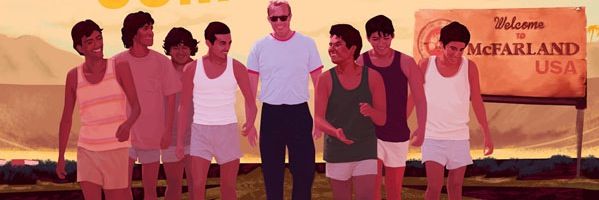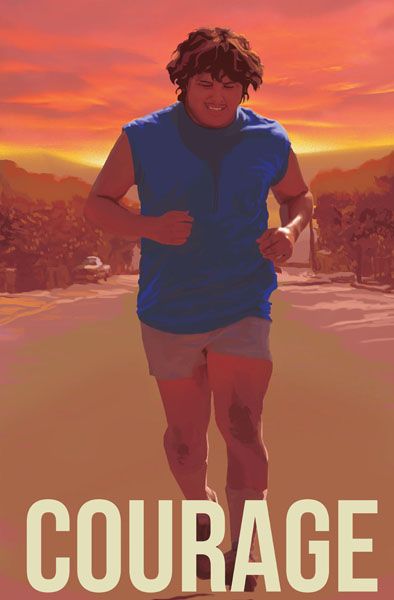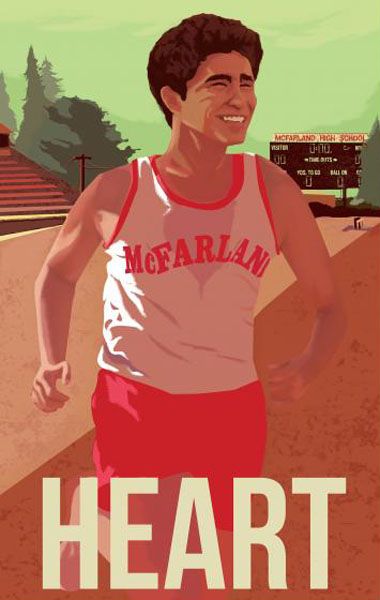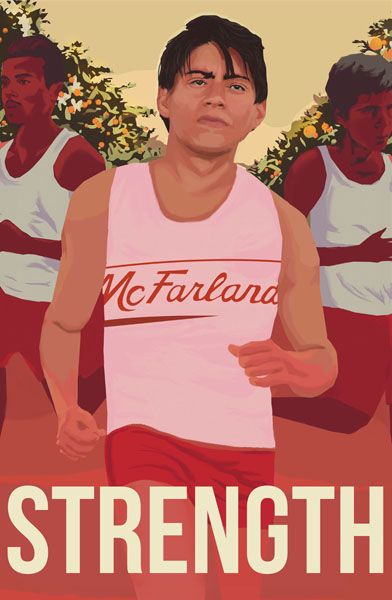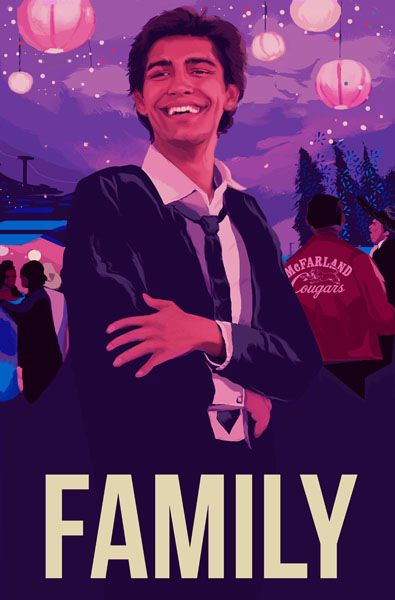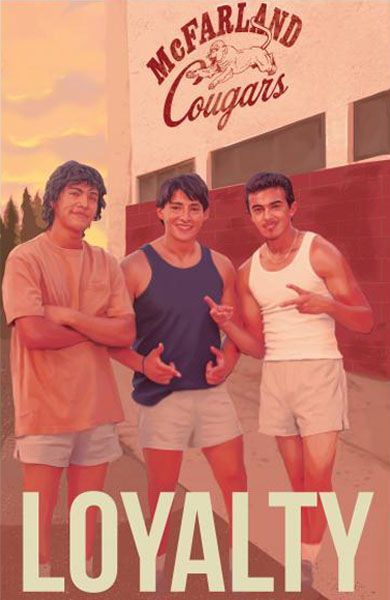Niki Caro is the type of all-encompassing director who clearly likes to fully immerse herself in the story that she’s telling. With McFarland, USA, based on the 1987 true story about a team of novice runners from the economically challenged town in California’s farm-rich Central Valley, her attention to detail makes you feel as though you’re right there, for every emotional beat. As this group of young men give their all to build a team under the direction of Coach Jim White (Kevin Costner), their incredible work ethic inspired the town, and the unlikely band of runners eventually overcame the odds to forge not only a championship cross-country team, but an enduring legacy, as well.
During this exclusive phone interview with Collider, director Niki Caro talked about why she was inspired to be a part of telling this story, why she passionately commits to everything that she does, cutting this film down to a manageable length (the first cut was over three hours), what she hopes people take from seeing this film, why Kevin Costner was the perfect actor to embody Coach White, and the most logistically challenging aspect of making the movie. She also talked about her next film, The Zookeeper’s Wife, starring Jessica Chastain and about the keepers of the Warsaw Zoo that helped save hundreds of people and animals during the Nazi invasion, and what attracted her to that project.
Collider: How did you come to this? Did you just get the script, read it and respond to it?
NIKI CARO: It’s a pretty ordinary story. I was speaking to Disney about another project, and they thought I would be good for the McFarland material. And when I read it, I was just inspired to do it. I was inspired by Coach White, of course, and what that team achieved in the ‘80s, and I was equally inspired by the legacy that they’ve left, which is enduring. I was also really inspired by the people of McFarland and the Central Valley, and that culture contributes so much to this country. I just wanted to take the opportunity to light that up.
You seem like the kind of filmmaker who totally immerses yourself in a project. Considering that, do you have to really respond immediately to something, before you take it on?
CARO: Yeah. It’s like falling in love. I do commit really, really passionately. It’s why I only work every five years. It’s exhausting. Also, I’ve got a family, and I want to be a really good parent, as well as a hopefully good filmmaker. So, I choose very carefully. In some ways, I think they choose me, in a strange way.
Because this has so many story elements, with the coach and his team, this family finding their footing in a new town, each of the runners and their families, and even just the residents in this community. How difficult was it to put this film together at a manageable length, and still have everybody feel like they got their due in the story?
CARO: That’s such a good question. The movie gets assembled as I work. When I first saw it, end to end, with every scene that I’d shot, it was three-and-a-quarter hours. Then, it became time to make some hard decisions. Everything in the movie, I felt was deserving of being in the movie. It was great performances and beautiful photography and good storytelling, but in the end, you have to decide where the money is, and I don’t mean the cash money. It was absolutely unquestionably with those boys and their coach. Really, really sadly, other things had to go. There was a lot of time taken to explore the journey of the White family, and the girls in the White family, and their journey in this town. But, Disney wouldn’t let me make a three-hour movie. That’s the sad part of filmmaking. You have to let go of some stuff that’s really good and has every right to be there, but has to gracefully step aside for the bigger agenda.
Is it nice to know that you can include those deleted scenes on the Blu-ray/DVD?
CARO: Yeah, that’s the nice part of technology. It’s our friend, in that regard.
The themes in this film feel like they could not only apply to any sport, but just to life, in general. What do you hope people take from seeing this film and learning about this really compelling true story?
CARO: Because of the way we told it, which is to be very, very specific and very, very authentic to those lives and to that story, that the movie becomes ultimately universal. I hope that it’s a movie that is for everybody. I’ve seen it play for a bunch of audiences now, and I’ve seen how much of a feel-good movie this is. I sit with audiences and observe them crying and shouting and laughing and carrying on. It can be a very interactive experience. In many ways, movies like this are becoming rarer and rarer. Studios are more likely to make big, big, big event movies that are very heavy on the technology and the explosions and the eye candy. This is O.G. filmmaking, with real story and real characters, shot on film. That said, it’s an amazing experience to watch a movie like this with a group of people, and collectively experience how good it feels when the underdog wins. In the case of these particular underdogs, you’ll feel really, really good. So, I hope that people come away from this movie extremely entertained, amused, moved and inspired. I also, just for myself, hope that they come away with maybe a slightly better appreciation of what the people of McFarland, and other like that, contribute to this country. The scale of their contribution completely overwhelms me, and I’m really glad that I’ve been part of a movie that can talk about that.
How special was it to have Coach White and the real teammates for that final scene?
CARO: It was so fun, but it wasn’t that special because they do that, all the time. With movies like this, it’s a convention, at the end of the film, to do a “Where are they now?” To actually have the real guys would have been enough, but the acknowledgment that the real guys still live there and do actually still train with those kids, is what made it special.
Obviously, if you’re going to make a sports movie, having Kevin Costner at the center of it gives it a certain credibility. What is it about him that makes him the perfect Jim White?
CARO: I joke that I couldn’t believe it when I met the real Jim White because he looks like a movie star. He looks like [Clint] Eastwood, and he’s all that. He’s really dry, he’s really smart and he’s really decent, and he loves those kids and that community. He could have had the fanciest job in America, given what he achieved, but he chose to remain in McFarland because it was his home and those were the people he loves. So, when you’ve got a character like that, Kevin Costner is the ideal guy because he has all of the same qualities as Jim. He’s a brilliant actor, a bona fide movie star, and a tremendously honorable and decent guy.
What was it like to watch the younger actors work with Kevin Costner, and him with them?
CARO: Kevin was so gentle and fatherly with them. In a way, he became their coach in movie life, but not their acting coach. He would never be so disrespectful as to tell them how to do their job, or to take over my job. What’s even more interesting is what they brought out of Kevin. That tenderness, that humility and that realness that you see in Kevin, on screen, those boys brought that out of him. That’s an amazing thing to watch.
With there being so many elements to making this film work, and so many details to everything, what was the most daunting aspect for you, as far as everything that you had to do to capture it properly? What was most logistically challenging?
CARO: It’s an ordinary thing, but I completely underestimated it, which was having eight people in just about every scene, and the commitment to the idea that this was not a movie about a big white guy saving a bunch of brown people. All of those kids needed to have equal time and attention on camera as Costner. So, it wasn’t a case of, “Okay, Kevin is the money, so we’re going to shoot the shit out of him and the kids will be in the background.” We were extremely careful to make sure that, with every single one of those kids, we had all the shots we needed, so that we could tell their story while telling Jim White’s. And that’s time consuming. That means every single person has to be on their game, all the time. We trained those boys to be on, all the time. They’re such a gift to the next director they come across because they never, ever checked out. I could put the camera on them, at any time, and they were totally on. It was super cool.
Do you have any idea what you’re going to do next?
CARO: I do. I’m working soon, actually, with Jessica Chastain on a movie called The Zookeeper’s Wife.
What appealed to you about that project?
CARO: It’s a true story. It’s going to be challenging for me because it’s a historically true story. I can’t just go to the place and knock on the doors and eat with the people. I have a much bigger challenge on my hands to represent that life, as accurately as possible, when it happened in 1939. That’s the big mountain I have to climb.
McFarland, USA opens in theaters on February 20th.

